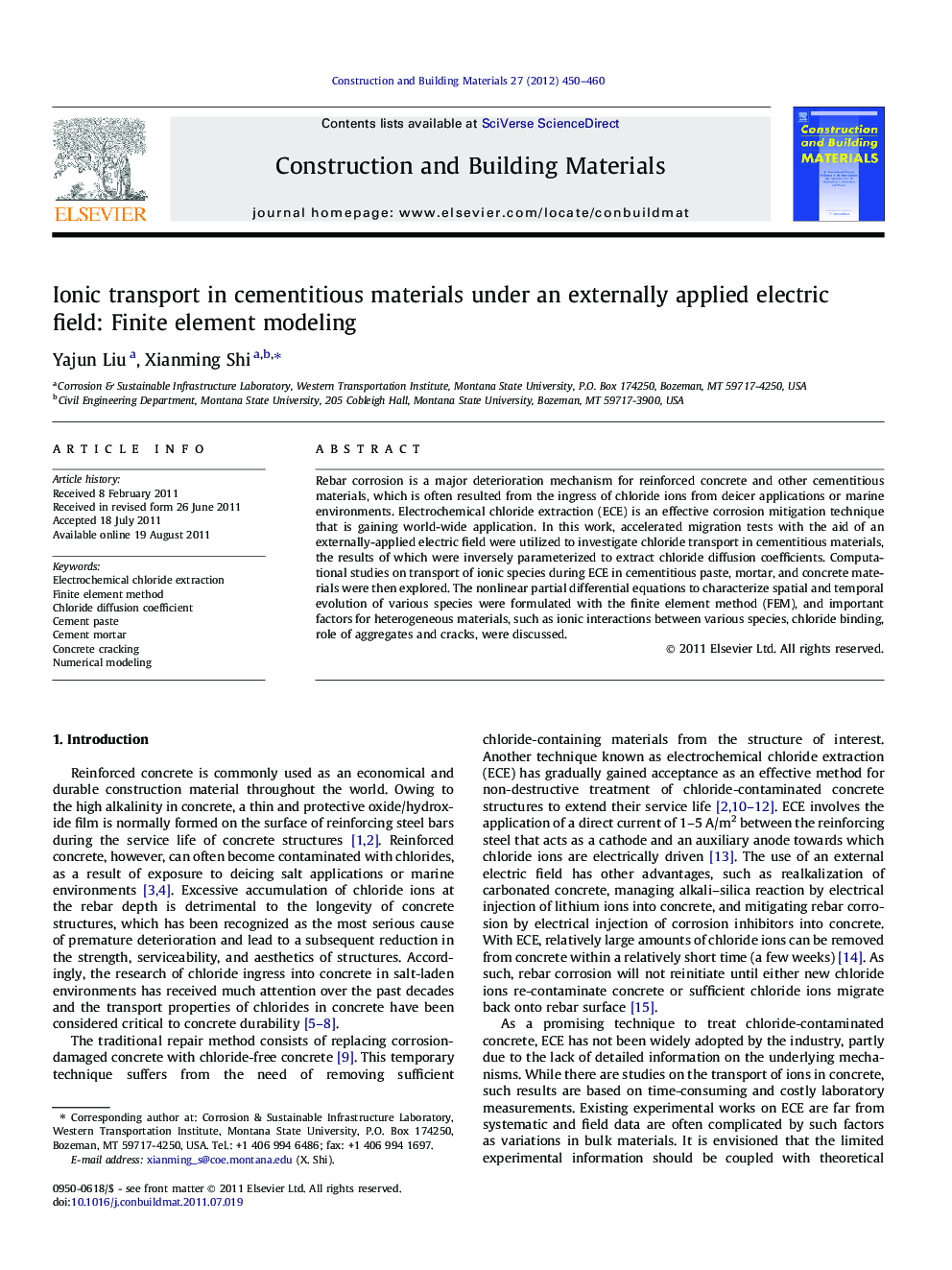| Article ID | Journal | Published Year | Pages | File Type |
|---|---|---|---|---|
| 259379 | Construction and Building Materials | 2012 | 11 Pages |
Rebar corrosion is a major deterioration mechanism for reinforced concrete and other cementitious materials, which is often resulted from the ingress of chloride ions from deicer applications or marine environments. Electrochemical chloride extraction (ECE) is an effective corrosion mitigation technique that is gaining world-wide application. In this work, accelerated migration tests with the aid of an externally-applied electric field were utilized to investigate chloride transport in cementitious materials, the results of which were inversely parameterized to extract chloride diffusion coefficients. Computational studies on transport of ionic species during ECE in cementitious paste, mortar, and concrete materials were then explored. The nonlinear partial differential equations to characterize spatial and temporal evolution of various species were formulated with the finite element method (FEM), and important factors for heterogeneous materials, such as ionic interactions between various species, chloride binding, role of aggregates and cracks, were discussed.
► We experimentally measure chloride diffusivity in mortar and in concrete. ► The results are inversely parameterized to extract chloride diffusion coefficients. ► We numerically model the transport of ionic species in concrete during ECE. ► We examine the effect of current density, treatment time, and initial chloride content. ► We examine the effect of rebar position, coarse aggregates, and cracks in concrete.
